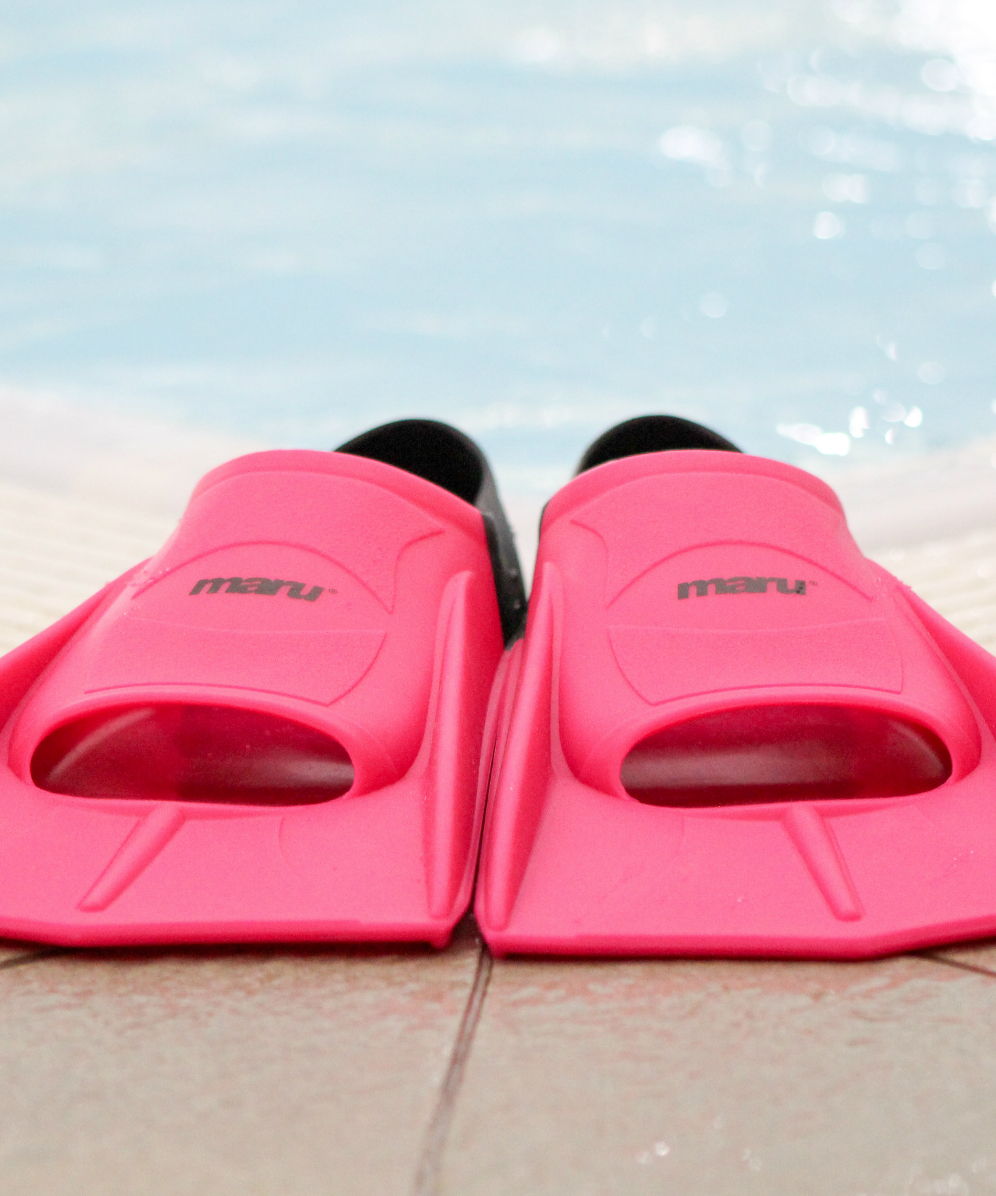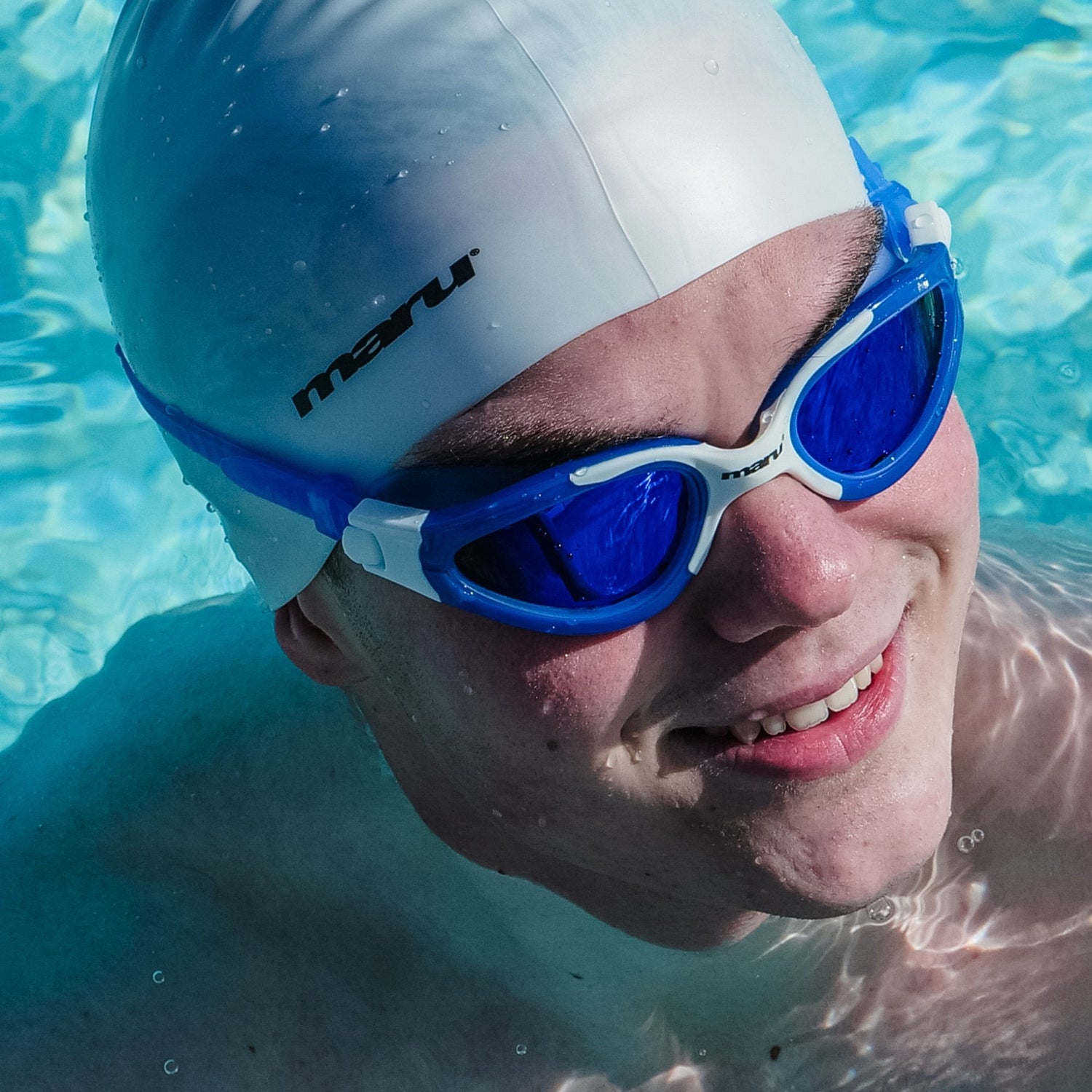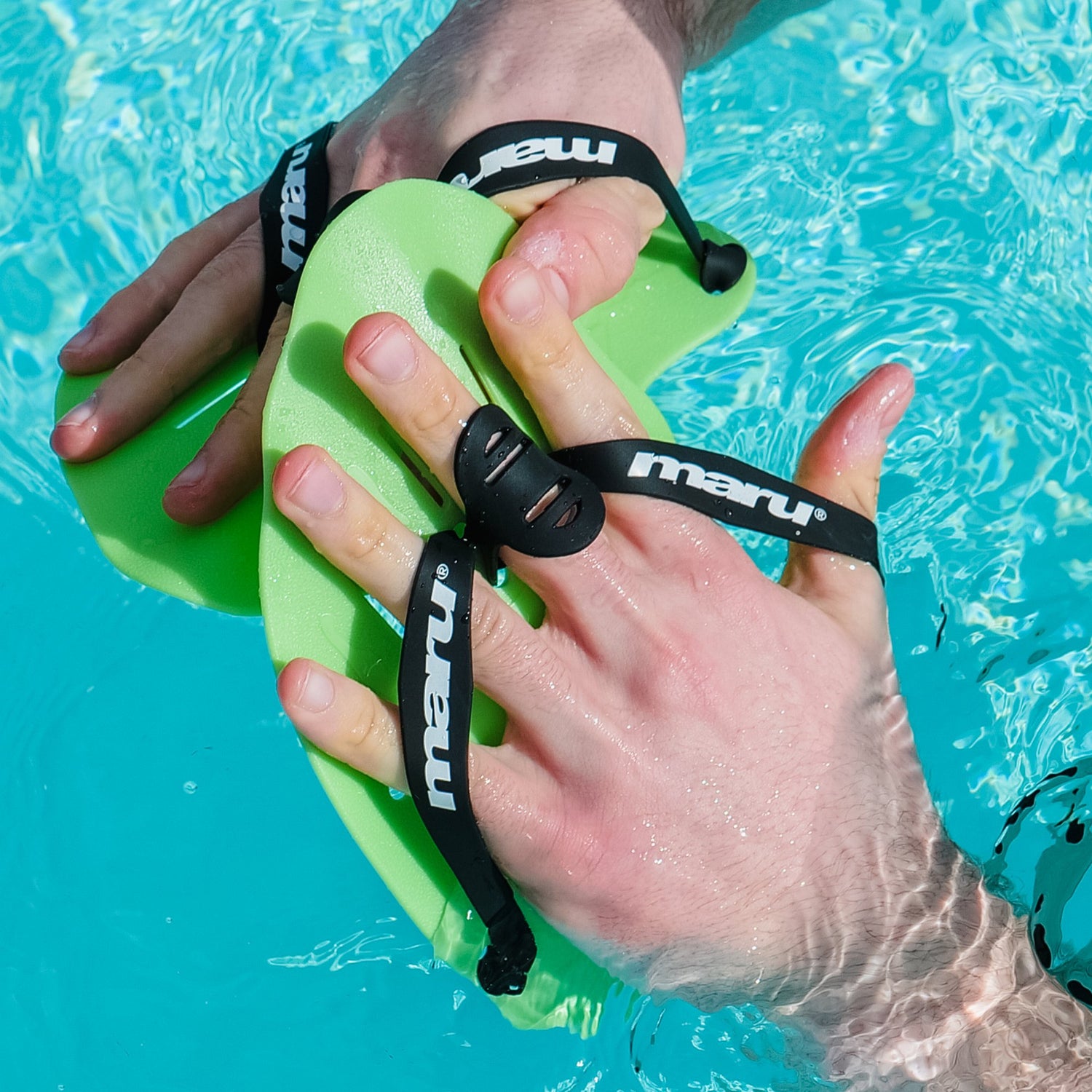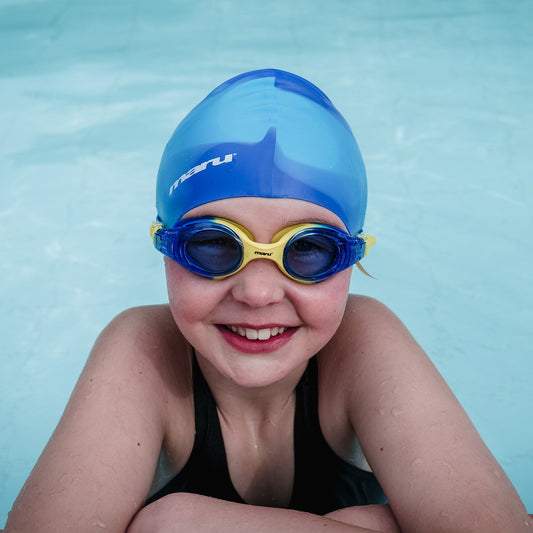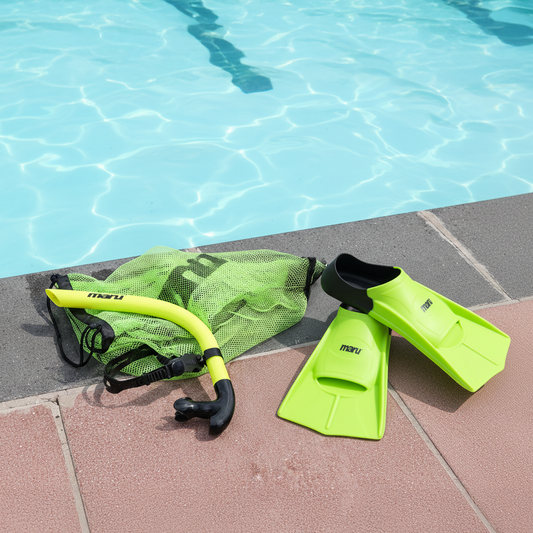If you're thinking about adding swimming to your routine, you've probably asked yourself: "Is half an hour in the pool actually going to make a difference?" We hear this all the time from swimmers just starting out, and honestly, it's a great question.
Here's the truth: yes, swimming for 30 minutes can absolutely be enough exercise, especially if you're consistent about it. At Maru, we work with swimmers at every level, and we've seen firsthand how powerful a regular half-hour swim can be for building fitness, feeling stronger, and genuinely enjoying the process.
Let's break down what you can realistically expect from your 30-minute sessions, the genuine health benefits swimming offers, and clear up some myths that might be making you second-guess yourself.
Health Benefits of Swimming 30 Minutes a Day
Swimming packs a lot into a short session. Here's what makes it such an effective workout:
It's Gentle on Your Joints
Water's buoyancy reduces stress on your joints, allowing more movement with less strain. This makes swimming particularly beneficial for people with arthritis or joint concerns. According to the Arthritis Foundation, aquatic exercise can help ease arthritis symptoms by supporting your body whilst you move, and warm pool water helps relax muscles and nerve endings. Research shows that water-based workouts can relieve pain better than land-based exercise for people with osteoarthritis, whilst improving function and quality of life. Whether you're managing an injury, dealing with joint issues, or simply want exercise that feels comfortable on your body, swimming delivers genuine benefits.
You're Working Your Whole Body
Every stroke engages multiple muscle groups at once, your arms pull, your core stabilises, your legs kick. Water provides about 12 times more resistance than air, so you're essentially doing resistance training without picking up a single weight. Your shoulders, back, chest, abs, glutes, and legs all get worked in every length you swim.
Your Heart and Lungs Get Stronger
The NHS recognises swimming as excellent aerobic exercise. Regular sessions strengthen your heart, improve lung capacity, help lower blood pressure, and reduce your risk of conditions like heart disease and type 2 diabetes. Over time, you'll notice everyday activities like climbing stairs or rushing for the bus become easier.
It's Brilliant for Mental Health
There's something genuinely calming about being in water. Research shows swimming can help reduce anxiety and depression symptoms. The rhythmic breathing, the repetitive motion, the way sounds are muffled underwater, it all creates a meditative effect that many swimmers describe as their favourite part of the experience.
It Burns Serious Calories
Depending on your weight, stroke choice, and how hard you're working, you'll burn roughly 200-400 calories in 30 minutes. Combined with balanced eating, swimming becomes a really effective part of managing your weight whilst building lean muscle.
Is 30 Minutes of Swimming a Day Enough?
For most people, especially if you're new to swimming, absolutely yes.
You're Meeting the Guidelines
The UK Chief Medical Officers recommends adults should accumulate 150 minutes of moderate-intensity activity per week. If you swim 30 minutes five times a week, you've hit that target. The World Health Organization says the same thing globally. You're doing proper, meaningful exercise.
Consistency Beats Everything
Here's what we've learned from years of supporting swimmers: regular 30-minute sessions beat occasional hour-long marathons every single time. Your body responds to consistent effort. Swimming three times this week is more valuable than one exhausting session followed by a fortnight off because you're dreading it.
It's About Effort, Not Speed
You don't need to thrash up and down the pool. Moderate effort where you're breathing harder than normal but could still chat if someone swam beside you provides excellent fitness benefits. Some days you'll feel energetic and push a bit harder. Other days you'll take it easier. Both matter.
Taking Breaks Is Completely Fine
If you need to pause at the end of a length for 20 or 30 seconds, that's not cheating, that's sensible training. Those little rests help you maintain decent technique and prevent you from completely exhausting yourself. As you get fitter, you'll naturally need them less.
Swimming for Tone vs Endurance: What's the Difference?
When you start swimming regularly, you might wonder what changes to expect. Will you see muscle definition? Feel less out of breath? Both? Understanding the difference helps you know what's normal.
Muscle Tone: Getting Stronger and More Defined
Water's natural resistance means every movement tones your muscles. Within a few weeks of regular swimming, you'll likely notice your arms feel firmer, your shoulders look more defined, and your core feels stronger. Swimming builds lean, functional muscle, not bodybuilder bulk, but the kind of strength that makes everyday life easier and looks good too.
Endurance: Building Stamina
Endurance is your ability to keep going without getting exhausted. This takes a bit longer to develop, usually several weeks to a few months but the improvements are brilliant. You'll swim more lengths without stopping, maintain better technique throughout your session, and recover more quickly. Your breathing becomes more controlled, your stroke rhythm steadier.
What to Expect and When
You'll notice muscle toning relatively quickly, often within 2-4 weeks of consistent swimming. Significant endurance improvements take longer, typically 6-12 weeks. Both happen naturally if you just keep showing up regularly. You don't have to choose between them or do anything special to target one over the other.
Common Swimming Fitness Myths Debunked
We hear these misconceptions constantly from beginners. Let's set the record straight.
Myth 1: "30 Minutes Isn't Proper Exercise"
This simply isn't true. Because of water's resistance, 30 minutes of swimming can equal 45-60 minutes of land-based exercise in terms of how hard your muscles and cardiovascular system are working. You're getting more done than you realise.
Myth 2: "Swimming Doesn't Build Muscle"
Swimming absolutely builds muscle throughout your entire body. You won't look like a bodybuilder, but you'll develop visible tone and functional strength. There's a reason competitive swimmers have such strong, lean physiques.
Myth 3: "You Have to Swim Fast for It to Count"
Not even slightly. Moderate-pace swimming with decent technique provides excellent benefits. Actually, swimming too fast with poor form is often less effective (and more exhausting) than swimming at a comfortable pace whilst focusing on technique.
Myth 4: "If I Get Tired Quickly, I'm Just Unfit"
Swimming uses muscles and breathing patterns that feel unfamiliar to most people, even fit ones. We've seen experienced runners struggle with their first few swimming sessions. Feeling challenged initially just means your body's adapting to something new, not that you're unfit.
Myth 5: "If I Stop Mid-Session, It Doesn't Count"
Rest intervals are a legitimate training method used by swimmers at all levels. Your workout absolutely counts, and those pauses will naturally become shorter and less frequent as you improve.
Practical Tips for Getting Started
A Simple 30-Minute Structure
Here's an easy approach:
- Warm-up (5 mins): Start with easy, gentle swimming to get your body ready
- Main set (20 mins): Try swimming 2 lengths at moderate effort, rest 30 seconds, then repeat. Adjust based on what feels manageable for you right now
- Cool-down (5 mins): Finish with slower, easier swimming to bring your heart rate down gradually
This is just a starting point, adapt it to suit your current fitness level.
Focus on Technique Basics
A few simple things make swimming feel much easier:
- Breathe out steadily whilst your face is underwater, then turn (don't lift) your head to breathe in
- Find a comfortable, steady rhythm rather than rushing
- Kick from your hips with relatively relaxed legs, you don't need to kick frantically hard
Make Yourself Comfortable
Small comfort details make a big difference:
- Keep water poolside and stay hydrated
- Get goggles that fit properly and a swim cap if it makes you more comfortable
- Start with whichever stroke feels most manageable, there's no rule saying you must do front crawl
- Nose clips or ear plugs are completely fine if they help you feel more comfortable
Basic training aids like kickboards can make early sessions more enjoyable by giving you different ways to practise and letting you focus on specific techniques.
Start Swimming with Confidence
Swimming for 30 minutes regularly provides genuine, comprehensive fitness benefits. It strengthens your heart, tones muscles throughout your body, supports your mental health, and does all of this whilst being kind to your joints.
The important bit isn't perfection, it's consistency, gradual improvement, and actually enjoying the process. Every session matters. Every stroke makes you stronger.
At Maru, we support swimmers at every stage of their journey. Whether you're just starting out or building on existing fitness, trust that your 30 minutes count. If you'd like to explore swim accessories that might support your training, from quality goggles to training aids, we're here to help you find what works for you.
The water's waiting. Dive in.


